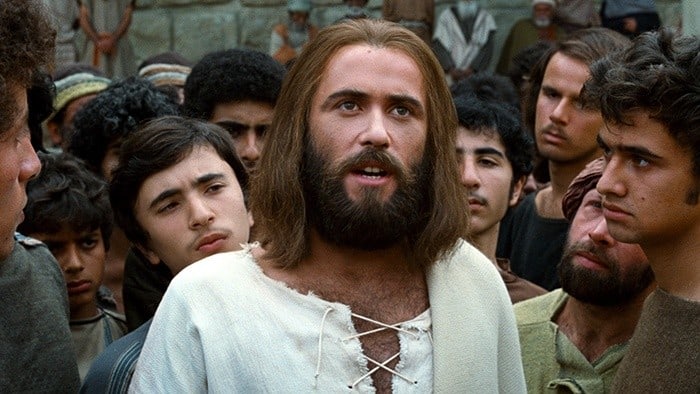Toward the end of His ministry, Jesus made a triumphant entrance into Jerusalem on the back of a young donkey. For many Israelites, this scene represented their hopes that the Messiah had finally come to reestablish the sovereignty of Israel. Rome would be driven out, and Israel would enjoy the peace that the prophets had promised them.
Unfortunately, Jesus’s goals were much different than people expected. Despite the huge crowds that greeted Him with waving palm branches and shouts of “Hosanna,” Jesus was headed on a trajectory that would eventually lead to the cross. This means that His time in Jerusalem would include serious clashes with religious authorities. Eventually, many of the voices who shouted “blessed is He who comes in the name of the Lord” as Jesus rode into town would scream “crucify Him” less than a week later.
It’s amid this turmoil that Jesus offers the little-known Parable of the Two Sons.
Cursing the fig tree
Jesus begins clashing with religious authorities almost immediately by cleansing the temple of moneychangers (Matthew 21:12-17). This act sets the Sanhedrin on edge and ramps up the tension between Jesus and the religious establishment.
On the following morning on the way into town from Bethany, Jesus curses a fig tree that’s full of leaves but bears no actual fruit (Matthew 21:18-22). Matthew presents this story as a hungry Jesus frustrated over a barren fig tree, but it’s more significant than that. The fig tree represents Israel, which displayed all the foliage of spirituality with none of the fruit.
The curse that Jesus spoke over the fig tree symbolized His judgment against Israel. This brief story provides the context for Jesus’s parable, which will explain more clearly why Jesus judges Israel.
The Parable of the Two Sons
When Jesus arrives at the temple again, the chief priests confront Him. They want to know where He gets His authority. They’re basically asking Him, “Just who do You think You are?!” After a brief conversation when Jesus refuses to tell them where He derives His authority, He tells this parable:
… There was a man who had two sons. He went to the first and said, “Son, go and work today in the vineyard.”
“I will not,” he answered, but later he changed his mind and went.
Then the father went to the other son and said the same thing. He answered, “I will, sir,” but he did not go.
Which of the two did what his father wanted?
“The first,” they answered … (Matthew 21:28-31).
Every parent is familiar with a child who willingly-even happily-agrees to do a chore but never bothers to do it. He contrasts this with a second child who initially refuses to do the work, but has a change of heart and does it.
It doesn’t matter how agreeable your children are when you ask them to do something-they’re only obedient when they get it done. The priests know this is true, and they answer accurately.
Jesus said to them, “Truly I tell you, the tax collectors and the prostitutes are entering the kingdom of God ahead of you. For John came to you to show you the way of righteousness, and you did not believe him, but the tax collectors and the prostitutes did. And even after you saw this, you did not repent and believe him” (Matthew 21:31b-32).
God had sent John the Baptist to prepare Israel for the Messiah’s coming. But where the religious leaders were skeptical of John’s message, Israel’s sinners responded to John’s message. Most of Israel’s religious establishment made a big show of their obedience, but they refused to recognize what God was doing.
Christ’s judgment of Israel was based on the fact that their traditions and lofty expressions of worship didn’t translate into actual submission to God.

Leading a small group or Bible study?
Download a free copy of Unpacking the Parables of Jesus. This guide is packed with the necessary tools to lead your group through an insightful discussion of Jesus’ parables. You’ll find critical insights and thoughtful questions to help guide your group through Jesus’ essential teachings. You’ll also receive our bi-weekly JFP News, packed with films and resources to help you share Jesus’ story with the world.
How does this parable apply to us?
So what is the meaning of the Parable of the Two Sons? This story should unsettle us. We might have the best intentions with our promises of faithfulness, but promised obedience isn’t necessarily obedience. Like the fig tree, it’s possible to convince ourselves that the appearance of vibrancy is proof of our devotion-but Jesus is looking for fruit.
Thankfully, the parable of the two sons reminds us that it’s never too late to follow through on the things Jesus asks from us!
Have you ever experienced unfulfilled promises from others? How did this make you feel?
All Scripture references quote the New International Version unless otherwise noted.
